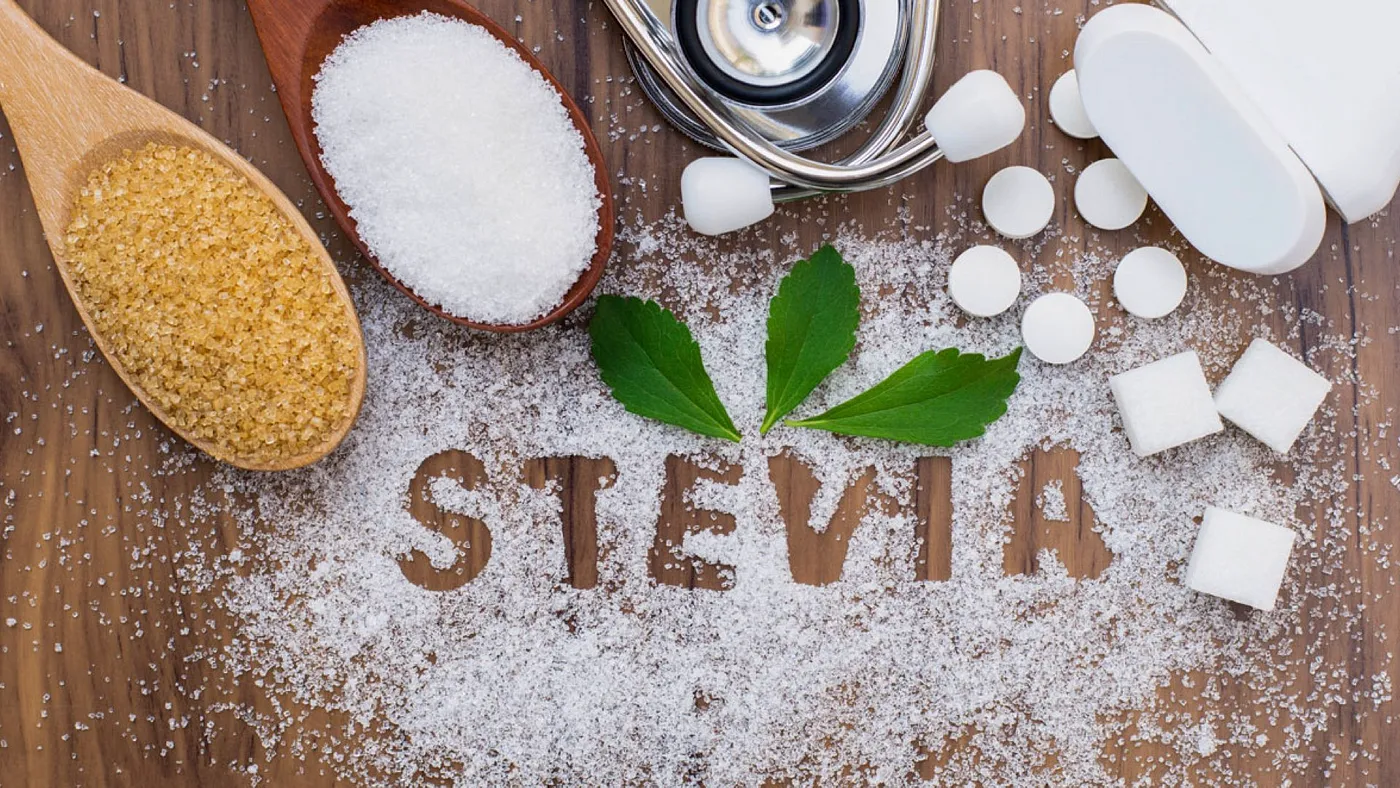Stevia is a natural, calorie-free sweetener that has become increasingly popular in recent years as an alternative to sugar and artificial sweeteners. While some people swear by its benefits, others are concerned about its safety and potential health risks. As with any food product, it's important to understand the facts about stevia so that you can make informed decisions about whether or not to include it in your diet.
 |
| What is Stevia? |
What is Stevia?
Stevia is a natural non-nutritive sweetener that has gained significant attention in recent years as consumers become more concerned about the potential health risks of consuming artificial sweeteners. Stevia is derived from the leaves of the Stevia rebaudiana plant, which grows in South America, and has been used for centuries by indigenous peoples for medicinal purposes and as a sweetener. The sweetness of stevia comes from its unique compounds, including stevioside and rebaudioside A, which are up to 300 times sweeter than sugar but are calorie-free and have no impact on blood sugar levels. Stevia is now widely available in many forms, including as a powder, liquid, and in various food and beverage products, providing consumers with a natural and low-calorie alternative to sugar and artificial sweeteners.
The History of Stevia
Stevia has been used for centuries by the indigenous people of South America and was first introduced to the Western world in the late 1800s. It gained popularity in Japan in the 1970s and has since become one of the most popular sugar substitutes in the world.
How is Stevia Processed and Used as a Sweetener?
After the leaves are harvested, they are dried and processed to extract the sweet compounds. The resulting powder or liquid can be used as a sugar substitute in a variety of foods and beverages. Stevia is popular in many low-calorie and sugar-free products, such as diet soda, yogurt, and baked goods.
Is Stevia Safe?
The safety of Stevia remains a topic of debate among scientists and health experts. Stevia has been found to be safe for consumption by major regulatory agencies, such as the World Health Organization and the Food and Drug Administration, and has been linked to potential health benefits, such as reducing blood sugar levels. However, some studies have shown that high doses of Stevia may have negative effects on the reproductive and cardiovascular systems. Overall, while the current evidence suggests that Stevia is generally safe for consumption, more research is needed to fully understand its potential risks and benefits.
Benefits of Stevia
Stevia has been found to improve insulin sensitivity by reducing blood sugar levels in people with diabetes or metabolic syndrome. Additionally, studies have shown that it may be helpful for weight management because it doesn't contribute to calorie intake like sugar does, making it an ideal alternative for those looking to reduce their caloric intake. Stevia also contains powerful antioxidants known as steviol glycosides, which help protect against oxidative damage caused by free radicals.
Side Effects of Stevia
Research suggests that stevia can cause gastrointestinal symptoms such as bloating, nausea, and gas in some individuals, particularly those with irritable bowel syndrome. Additionally, long-term use of high doses of stevia may affect the kidneys, as it is known to cause oxidative stress. Moreover, there have been reports of allergic reactions to stevia, including rashes, itching, and difficulty in breathing. Despite these concerns, stevia is generally considered safe when consumed in moderation. It is important to check with a healthcare provider before consuming stevia, especially if you have pre-existing medical conditions.
How to Use Stevia
To use Stevia, you first need to determine the level of sweetness you require. For example, one teaspoon of Stevia is equivalent to about one cup of sugar. You can adjust the measures accordingly. Stevia is heat-sensitive, so it's essential to use it at the end of cooking or baking. Stevia is available in liquid or powder forms, and both can be used to sweeten beverages or foods. To get the best results, it's advisable to start with a small amount of Stevia and then add gradually to avoid over-sweetening.
How Does Stevia Compare to Other Sweeteners?
Stevia is often compared to other sweeteners like aspartame, sucralose, and saccharin. Unlike these artificial sweeteners, stevia is a natural sweetener derived from the leaves of the stevia plant. Stevia has no calories and does not affect blood sugar levels, making it a popular option for people with diabetes or those trying to lose weight. However, some people may find its taste bitter or metallic, especially when used in large amounts. Additionally, stevia is not suitable for baking since it does not caramelize or contribute to the texture of baked goods in the same way sugar does.
How Much Stevia Can You Safely Consume?
According to the FDA, stevia is generally recognized as safe when consumed in moderation. The acceptable daily intake of stevia is 4 milligrams per kilogram of body weight. For a 150-pound person, this translates to about 9 packets of stevia per day.
Conclusion
Stevia is a safe and low-calorie alternative to sugar and artificial sweeteners for most people. While some people may experience mild side effects, stevia has been approved for use by regulatory agencies and can be consumed as part of a balanced diet. As with any food or supplement, it is important to consume stevia in moderation and consult with your doctor if you have any concerns.
#stevia #sweetener #sugar #health #healthylifestyle #healthy #lifestyle #healthyliving #healthtips #herbs #plant #plants #steviasugar #steviaextract #steviapowder
Comments
Post a Comment